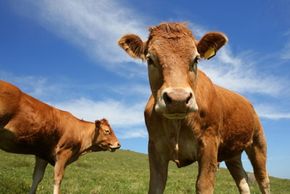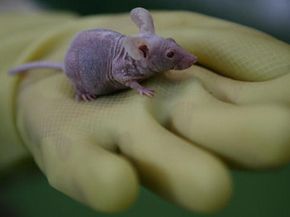Key Takeaways
- Animals experience happiness through various behaviors and biological mechanisms similar to humans.
- Factors such as social interactions, environmental enrichment and fulfilling physiological needs contribute to animal well-being.
- Understanding and promoting animal happiness is crucial for their welfare in captivity and conservation efforts.
The American Meat Institute (AMI), a trade association of meat packers and processors, maintains a set of guidelines and standards for its members to follow in the livestock slaughtering process. The standards include instructions on where to place electrodes to stun and then kill an animal, as well as what steps to follow to ensure a quick and painless death. The AMI's guidelines also warn members of the signs of animal distress and how to prevent them during slaughter [source: Grandin].
The AMI's concern for rendering livestock brain dead before inducing death reflects a rather humane view of our four-legged companions: Animals, like humans, can feel fear and pain. This is obvious in the wild; after all, fear is a function of survival. The idea that animals can feel pain has also been proven through clinical tests, like teaching animals to fear their food supply through electric shocks, as psychologist B.F. Skinner managed to do.
Advertisement
Animals clearly feel fear, and as a result of the scientific community's increased sensitivity to this issue, stricter regulations concerning animal testing and meat production have been in place since the middle of the 20th century. But what about the other end of the spectrum? A debate has been ongoing for some time now over whether animals have the capacity to feel happiness. It certainly follows that they should be able to, considering that they're capable of fear. The problem comes in the distinction between fear and happiness.
Fear is an emotion that generally produces observable behavior. A field mouse will flee from the shadow of a hawk flying overhead, for example. Happiness, however, is much more subjective, and produces less distinctly discernable behavior. What's more, there's no reason for happiness to exist in the animal kingdom, since all necessary behavior is considered to serve as some form of survival mechanism.
But what, exactly is the problem? Anyone who's been around a dog wagging its tail or a cat purring contentedly can attest that animals feel happiness. Not so fast, say detractors. They would contend that this concept is an example of anthropomorphizing. To put it simply, they say, animals aren't people, so humans shouldn't treat them as such.
Advertisement



